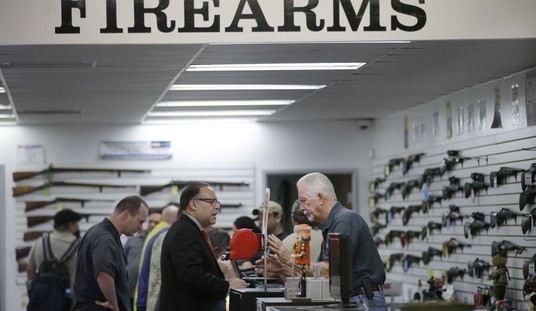
Navy SEALs
The last few months have seen extreme highs and extreme lows for America’s vaunted Naval Development Group (DevGru), better known to the world as SEAL Team 6.
First came the tremendous news that Osama bin Laden had finally been brought to justice. Most recently, we learned of the terrible deaths of a large number of DevGru operators while engaged in a mission.
Many have used the latter tragedy as raw material for whatever particular cause or political point they want to make. Those arguments are not worthy of even passing notice. But many Americans I’ve spoken to over the past few days seem to have legitimate concerns about what the results of the latest incident will be.
They worry that the SEALs’ deaths will somehow force the unit – and America – to lose courage, to hesitate or even fail in other missions.
I can’t, don’t and won’t pretend to speak for any SEAL, let alone those in DevGru. But I can say from my acquaintances and past experiences, that SEALs are the most dedicated individuals on the planet. They are, in every sense, true warriors. This incident won’t make them shirk combat; on the contrary, they’ll be even more committed to carrying out their mission.
I admit that I can’t speak with such confidence about the leadership above them, either military or civilian. I believe that the generals and admirals who have the SEALs under their command understand their capabilities and are willing to use them. The raid on bin Laden is some evidence that the civilians above them agree as well. The fact that an attack was carried out just the other day on the Taliban leadership in the area where the helicopter was downed is a good sign.
The deaths of the Americans – of any Americans, not just SEALs – is terrible and tragic. It’s a burden on their families and other loved ones. It diminishes us all. But it should not be seen as a reason to retreat from principles or goals.
I’ve recently completed work on a biography of Omar Bradley, one of America’s great generals of World War II. Among the many things Bradley believed in, one impressed me more than any other. To win a war, he thought, soldiers must press close to the enemy and fight. They must risk their lives. They must die.

Gen. Omar Bradley
Bradley’s nickname as the “GI General” was well deserved. There was no general in the war who thought more of the common soldier. But that never stopped him from pressing his men to fight in battle. Their deaths affected him greatly, but never kept him from prosecuting the war to its fullest, nor did he hesitate to criticize them for not closing with the enemy. He himself risked his life countless times, and even went so far as to shoot at strafing German aircraft with his hunting rifle. Had he been killed, he would have accepted it as part of the price of getting his job as a commander and leader done.
There is room for honest debate over whether our goals can be met in Afghanistan. I believe if our forces are allowed to prosecute the war to the fullest, they can be. Others may certainly have another perspective. But citing the downing of a single helicopter directly or indirectly as a reason to withdraw is foolish and shallow.
The deaths in Afghanistan were tragic and terrible. But we owe it to the dead to show the same courage they showed. They had great faith in their collective character and abilities; we should have no less.
[For a ree chapter of DeFelice’s book “Omar Bradley: General at War” click: here.]









Join the conversation as a VIP Member